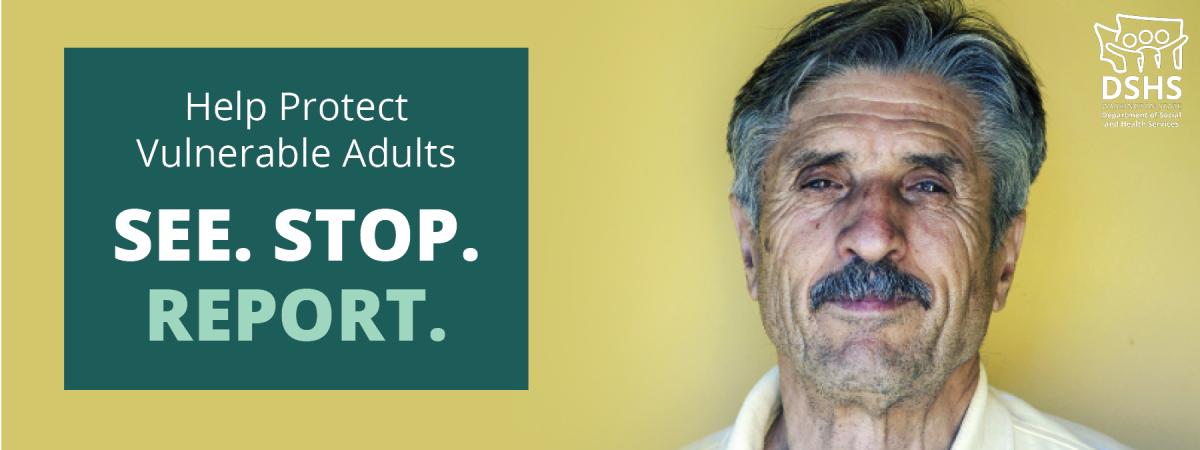
Adult Protective Services (APS) is dedicated to serving vulnerable adults. We investigate reports about abuse, abandonment, neglect, exploitation and self-neglect of vulnerable adults in Washington State. We collaborate with other agencies to offer protective services as needed. Our goal is to promote lives free of harm while respecting individual choice.
Who is considered a vulnerable adult?
The State of Washington defines a vulnerable adult by law as a person who is:
- 60 years of age or older who has the functional, mental, or physical inability to care for himself or herself; or
- Is subject to a guardianship under RCW 11.130.265 or subject to conservatorship under RCW 11.130.360; or
- Who has a developmental disability as defined under RCW 71A.10.020; or
- Admitted to any facility; or
- Receiving services from home health, hospice, or home care agencies licensed or required to be licensed under chapter 70.127 RCW; or
- Receiving services from an individual provider; or
- Who self-directs his or her own care and receives services from a personal aide under chapter 74.39 RCW.
Not sure if someone is considered a vulnerable adult? Report your concerns anyway. We’ll take care of the rest.
What is the process for APS investigations?

Adult Protective Services does not have the authority to:
- Remove a client against his or her own will
- Detain or arrest an individual
- Act as guardianship services
- Act as emergency response (such as law enforcement or EMT)
- Force people to accept services
Additional Information
- Help protect vulnerable adults: Learn how simple actions can help protect vulnerable adults from abuse and neglect
- Mandatory Reporters: Learn who is considered a mandatory reporter, where to get training and how to make a report with APS
- APS Policies and Procedures

